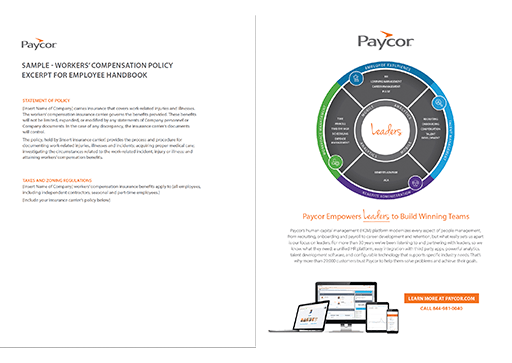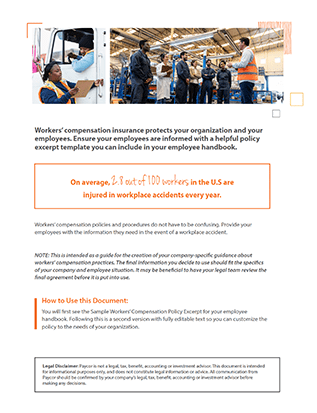As a responsible employer, you want to provide the best work environment for your employees. However, even with the best safety precautions in place, accidents do happen. Fortunately, workers’ compensation insurance helps protect employees and employers in the event of a work-related injury or mishap. In order to maximize the benefits of workers’ compensation insurance as an employer, there are few key points you should know.
How can I communicate information about workers’ compensation to my employees?
Communication about your workers’ comp policy is critical, and in some states required by law. Every employee should understand what is covered and know the process for filing a claim. This can be communicated with a poster, a training or an excerpt in an employee handbook. To help, we’ve included some information you can edit and include in your company handbook. In addition to communicating with employees about workers’ compensation before an incident happens, it is also important to communicate with an employee during the claims process.











